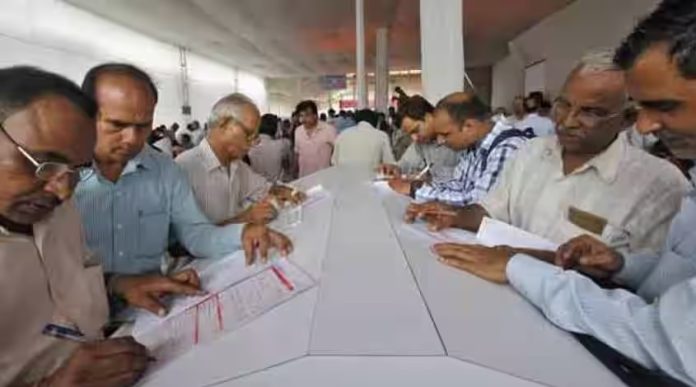Income tax: Senior citizens of the country are given tax exemption by the government, but for this it is very important to follow some rules. If you also want to get tax exemption, then before that know this rule
The last date to file Income Tax Return (ITR) for all taxpayers is 31st July. People know that it is necessary for all the earners to pay tax, so all the taxpayers are calculating their respective tax exemptions and deductions.
But today we will tell you about those senior citizens who are 60 years or above, at which places they can avail tax exemption and tax deduction .
Where can senior citizens avail the benefits?
Senior citizens have to claim deduction against their advance tax liability, if applicable, or self-assessment tax, while filing their returns . The tax deduction also depends on whether you are a resident senior citizen (60 years or more but less than 80 years), or a super-senior citizen (80 or more).
If you have opted for the old tax regime, you will be eligible for several exemptions and deductions. But if you opt for the new tax regime, all these will not be applicable. In addition, in some cases, you may be exempt from the need to file a tax return.
How much discount for senior citizens?
Under the old tax regime, a tax exemption limit of Rs 3 lakh was given to senior citizens residing in India and Rs 5 lakh to super-senior citizens.
However, under the new tax regime, all resident individual taxpayers, whether 60 years and above or not, have a basic exemption limit of Rs 2.5 lakh for FY 22-23. If their income is within the exemption limit, then they are not required to file ITR.
Advance tax rebate
Under the old tax regime, as per Section 207 of the IT Act, a resident senior citizen (60 or above) was not required to pay any advance tax, provided the citizen did not have any business or professional income. Let us tell you that this exemption is also available under the new tax regime.
Deduction for interest income
Under Section 80TTB of the Income Tax Act, a resident senior citizen (60 or above) can claim a deduction of up to Rs 50,000 for interest income earned in a financial year.
This claim applies to bank savings and FD accounts as well as interest income from deposits with post offices and co-operative banks. However, this deduction is not available under the new tax regime. Also under section 194A of Income Tax, no TDS is deducted on interest payment up to Rs 50,000 per financial year to resident senior citizens.
Deduction for health insurance premium
Under Section 80D of Income Tax, a resident senior citizen (60 or above) can claim a deduction of up to Rs 50,000 per financial year for health insurance premium paid for himself or his family (all senior citizens). Family here means spouse and dependent children.













